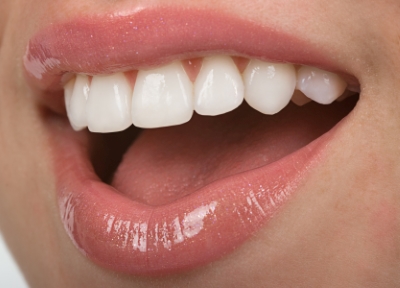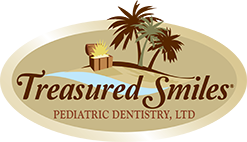Sensitive Teeth: Causes, Prevention and Treatment Options

Around 57 percent of adults aged 20 to 50 suffer from sensitive teeth. If you having trouble enjoying a glass of ice water or hot cup of coffee, you might struggle with this issue.
Going to the dentist is the first step in determining whether you have sensitive teeth and what you can do to avoid the discomfort. Here are a few of the most common reasons why you're dealing with sensitive teeth, ways to prevent sensitive teeth and treatment options available.
Common Causes of Tooth Sensitivity
Sensitive teeth have several common causes, and in many cases, an improper oral hygiene is the culprit. Here are a few of the most common causes of tooth sensitivity:
- Bruxism. Grinding your teeth or clenching your jaws slowly wears away your tooth enamel, which leaves the nerve beneath exposed.
- Small tooth cracks. Tooth cracks can be caused by many things, including biting down on hard food or having improper oral hygiene. These cracks expose the sensitive pulp, which leads to pain.
- Rough tooth brushing. Using a hard-bristled toothbrush or brushing your teeth too vigorously can slowly break down enamel. Once again, worn enamel will cause sensitivity.
- Consuming acidic foods. Indulging in your favorite acidic fruits and other foods could also erode your enamel.
- Using acidic mouthwash. Swishing your favorite mouthwash several times a day may do more harm than good. Rinsing with mouthwash that contains alcohol or has a low pH can cause the tooth erosion that leads to tooth sensitivity.
Temporary tooth sensitivity can occur after a tooth whitening procedure or another dental procedure. If you experience this, don't hesitate to ask your dentist for suggestions about how to care for your teeth until the sensitivity subsides.
Prevention Tips for Tooth Sensitivity
Lessening the symptoms of tooth sensitivity and preventing them in the future are the best ways to put an end to the pain. Pinpointing the reason for your tooth sensitivity is the first step. Your dentist can then help create a treatment plan to prevent any future damage.
For example, if you brush vigorously or use a hard-bristled toothbrush, switch to a soft-bristled brush and ask your dentist to show you the proper way to brush your teeth. If consuming too many acidic foods and drinks is the issue, learn to identify the foods and beverages you should exclude from your diet.
Lemons, grapefruits, pomegranates, cabbage, beets and corn are all highly acidic foods. However, you might not realize there are other foods that can slowly erode the enamel on your teeth, including Greek yogurt, mayonnaise, mustard and hummus.
Switching to a low-acid mouthwash or oral rinse can also help prevent tooth erosion. Ask your dentist to recommend mouthwashes that are safe and will not damage your teeth.
The best way to prevent tooth sensitivity is to continue your oral hygiene routine, which includes brushing and flossing twice a day and seeing your dentist at least twice a year.
Treatment Options for Sensitive Teeth
Unfortunately, sometimes pinpointing the cause of your sensitive teeth and changing your eating and oral hygiene habits won't help you find relief. Your dentist will have several treatment options available that can help you repair the damage to your enamel and allow you to enjoy eating and drinking without the fear of discomfort.
Here are a few of the most common treatment options available:
- Desensitizing toothpaste. Your dentist might recommend a desensitizing toothpaste as the first option. The active ingredient in many of these toothpastes is potassium nitrate, which works by preventing foods and beverages from irritating dentin. It might take several weeks for the toothpaste to be effective.
- Fluoride treatments. A fluoride foam, gel or varnish is applied to the teeth to help strengthen the enamel. This treatment can be used in conjunction with a desensitizing product.
- Bonding treatments. In some cases, a bonding agent is the best way to protect the enamel and dentin. It is applied to the teeth, and the product acts like a protective barrier that prevent food and beverages from irritating sensitive teeth.
- Mouth guards. If grinding your teeth or clenching your jaw is causing tooth sensitivity, your dentist will recommend having you fitted for a mouth guard. The guard is typically worn at night, when the bruxism is often the worst.
When none of the above-mentioned options are successful, the dentist might recommend a more radical approach to ease the discomfort of sensitive teeth. For example, repairing decayed teeth with a filling or crown will often ease sensitivity in specific teeth. Often, the last resort is a root canal, which involves burrowing into the affected tooth and removing the pulp and nerves.
Tooth sensitivity is a common issue that is caused by a variety things, from improper dental hygiene to enjoying acidic foods. If you are suffering with sensitive teeth, don't hesitate to contact the professionals at Treasured Smiles Dentistry.
